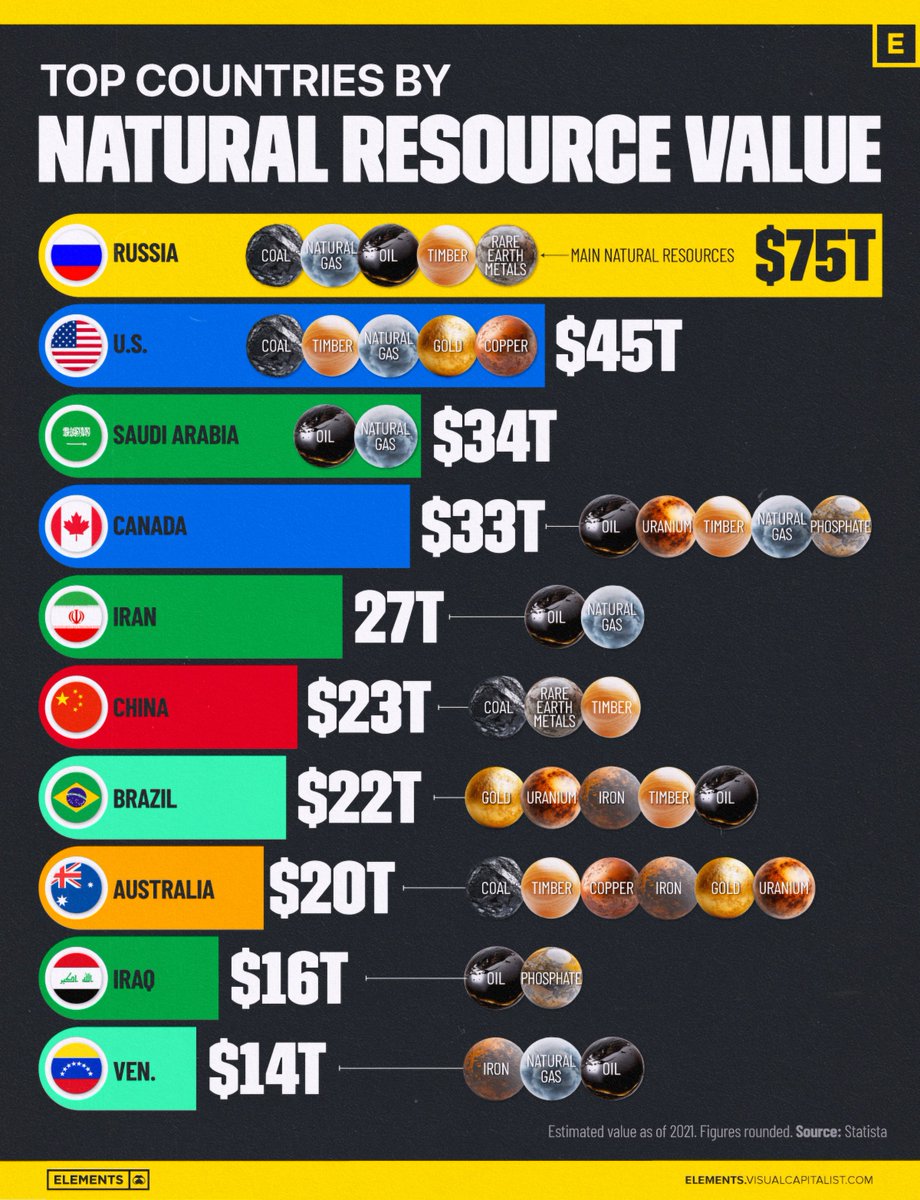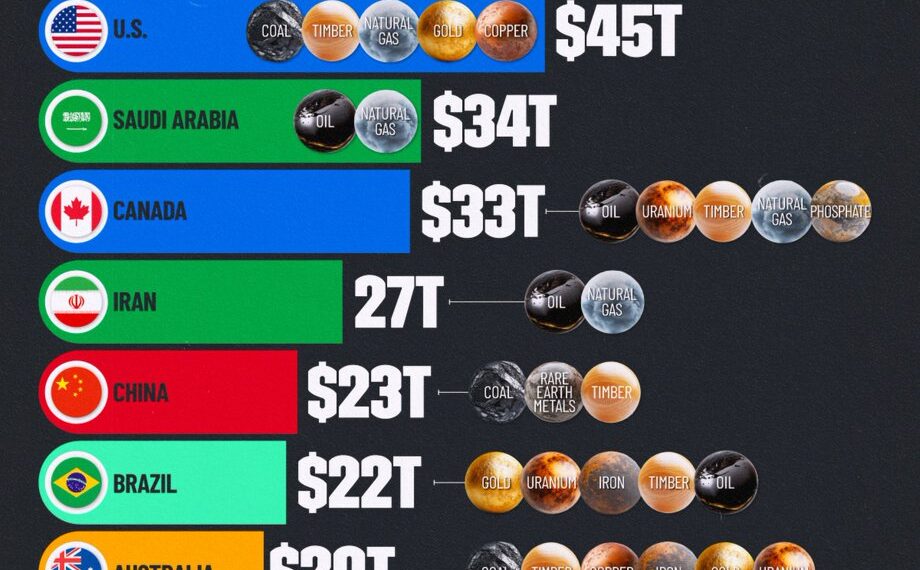Select Language:

Top 10 Countries Richest in Natural Resources
Russia tops the list with an astonishing $75 trillion in natural resource wealth
Russia holds the number one spot worldwide, boasting an incredible $75 trillion worth of natural resources. The country is a major global player in coal, natural gas, oil, gold, timber, and rare earth metals. Its vast, resource-rich landscape contributes significantly to its economy and global influence, making it a key energy and material supplier on the world stage.
The United States: A diverse resource powerhouse with $45 trillion
The United States ranks second with $45 trillion in natural resources. Its wealth is spread across a broad spectrum, including abundant coal, timber, natural gas, gold, and copper. This diversity enables the U.S. to support multiple industries, from energy production to manufacturing and technology, reinforcing its economic strength and global importance.
Saudi Arabia: Leading the Middle East with $34 trillion in resources
Saudi Arabia, the Gulf nation renowned for its oil reserves, boasts a resource valuation of $34 trillion. Oil dominates its wealth, making it one of the world’s largest exporters. Apart from oil, the country also possesses timber resources, supporting its economic stability and of strategic geopolitical importance.
Canada: Rich in oil, uranium, and more with $33 trillion
Canada’s natural resource wealth totals approximately $33 trillion. Its abundant reserves include oil sands, uranium, timber, natural gas, and phosphate deposits. These resources underpin a robust economy centered around energy, mining, and forestry sectors, export-dependent and resilient to global market fluctuations.
Iran: $27 trillion rooted in oil and gas
Iran’s resource wealth sits at $27 trillion, driven primarily by vast oil and natural gas reserves. The country’s energy sector is a significant contributor to its economy and regional influence in the Middle East, with ongoing developments to diversify its resource utilization.
China: A resource-rich giant with $23 trillion
China, with an estimated $23 trillion in natural resources, is rich in coal, rare earth metals, and timber. These resources have played a pivotal role in fueling its rapid industrial growth and technological advancements, making it a dominant manufacturing and innovation hub.
Brazil: A treasure trove of minerals and oil worth $22 trillion
Brazil’s natural wealth is approximately $22 trillion, characterized by gold, uranium, iron, timber, and oil. Its diverse resources support several key industries, including mining, agriculture, and energy, positioning Brazil as a significant player in Latin America.
Australia: $20 trillion in mineral riches
Australia boasts about $20 trillion in resource wealth. It is endowed with coal, timber, copper, iron ore, gold, and uranium, supporting a global mining industry. These resources contribute substantially to the nation’s export economy and energy needs.
Iraq: Driven by oil and phosphate rock at $16 trillion
Iraq’s resource valuation stands at $16 trillion, primarily built on its vast oil and phosphate rock reserves. Despite geopolitical challenges, its oil industry remains a cornerstone of its economy and regional influence.
Venezuela: South America’s resource-rich nation at $14 trillion
Venezuela’s natural resources are valued at $14 trillion, with significant reserves of oil, iron, and natural gas. The country’s large oil reserves have historically been central to its economy, though political and economic issues have impacted its capacity to harness this wealth effectively.
Estimated resource values based on 2021 data.
Source: Statista






